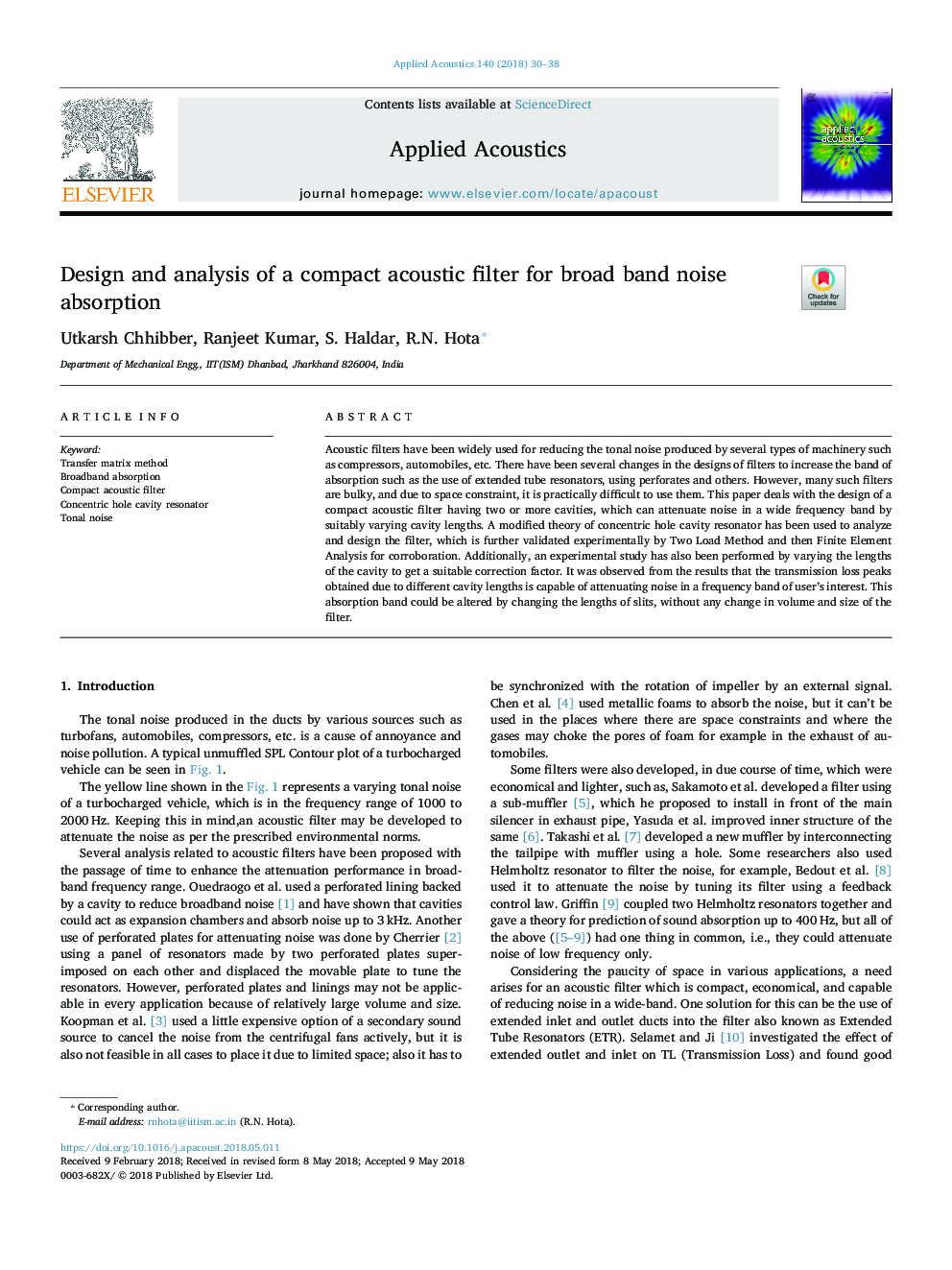| Article ID | Journal | Published Year | Pages | File Type |
|---|---|---|---|---|
| 7152051 | Applied Acoustics | 2018 | 9 Pages |
Abstract
Acoustic filters have been widely used for reducing the tonal noise produced by several types of machinery such as compressors, automobiles, etc. There have been several changes in the designs of filters to increase the band of absorption such as the use of extended tube resonators, using perforates and others. However, many such filters are bulky, and due to space constraint, it is practically difficult to use them. This paper deals with the design of a compact acoustic filter having two or more cavities, which can attenuate noise in a wide frequency band by suitably varying cavity lengths. A modified theory of concentric hole cavity resonator has been used to analyze and design the filter, which is further validated experimentally by Two Load Method and then Finite Element Analysis for corroboration. Additionally, an experimental study has also been performed by varying the lengths of the cavity to get a suitable correction factor. It was observed from the results that the transmission loss peaks obtained due to different cavity lengths is capable of attenuating noise in a frequency band of user's interest. This absorption band could be altered by changing the lengths of slits, without any change in volume and size of the filter.
Related Topics
Physical Sciences and Engineering
Engineering
Mechanical Engineering
Authors
Utkarsh Chhibber, Ranjeet Kumar, S. Haldar, R.N. Hota,
